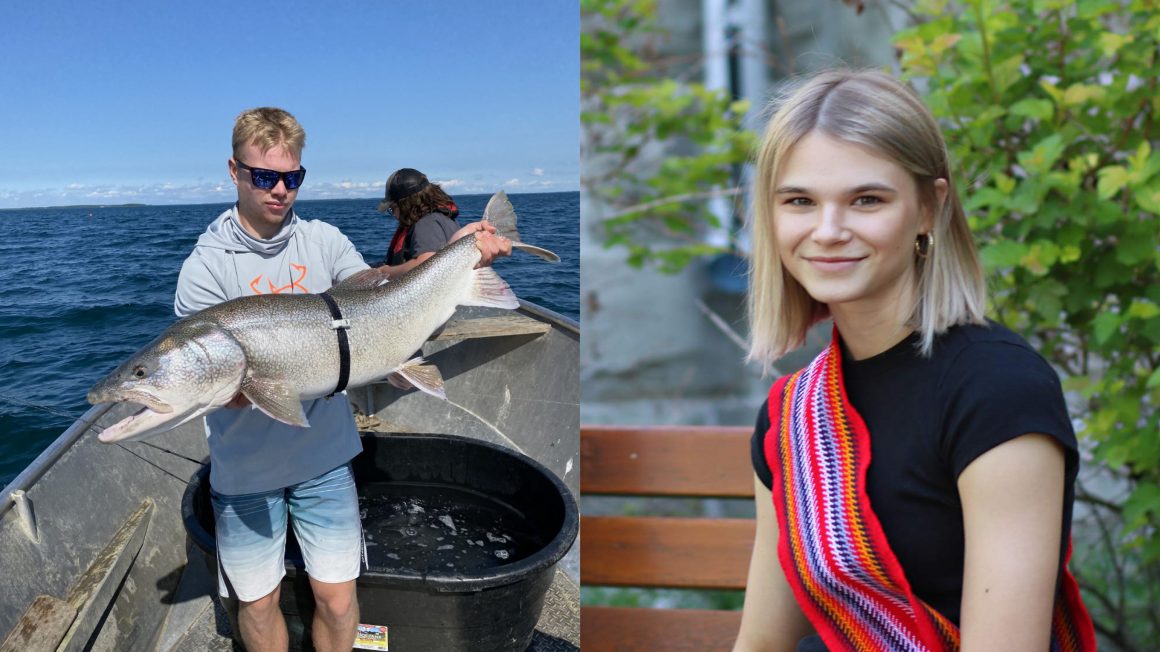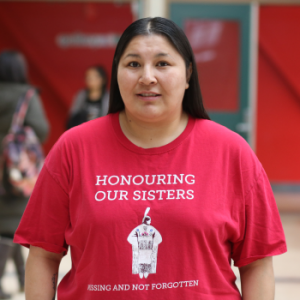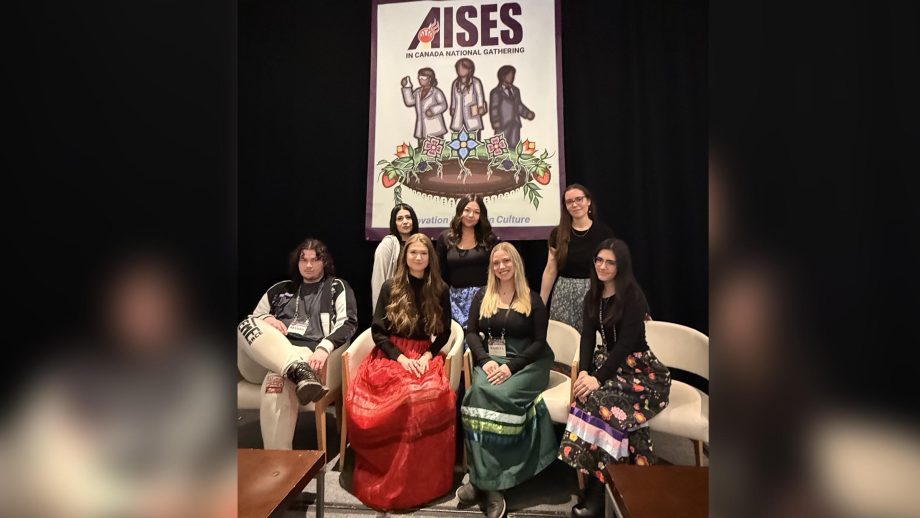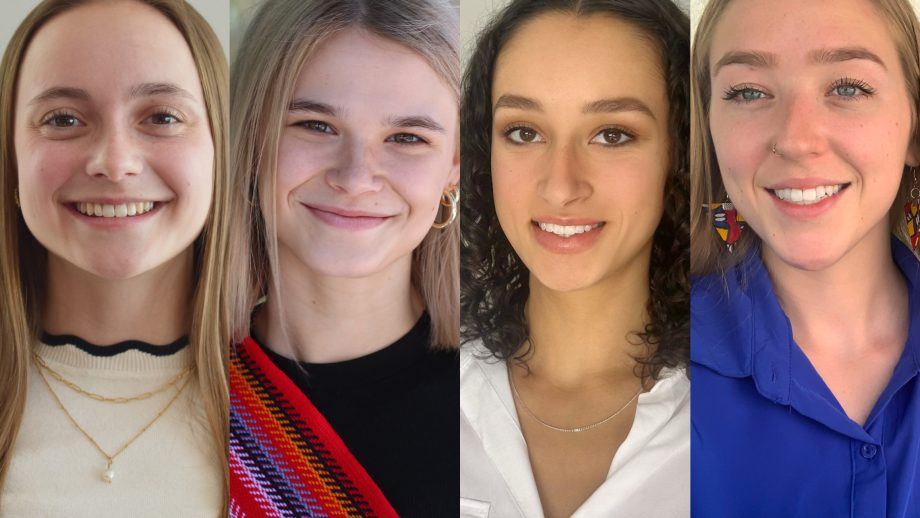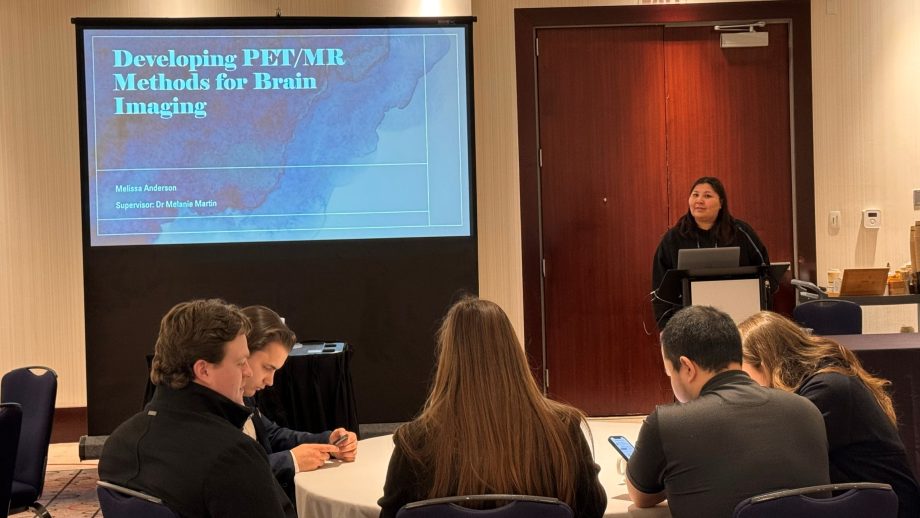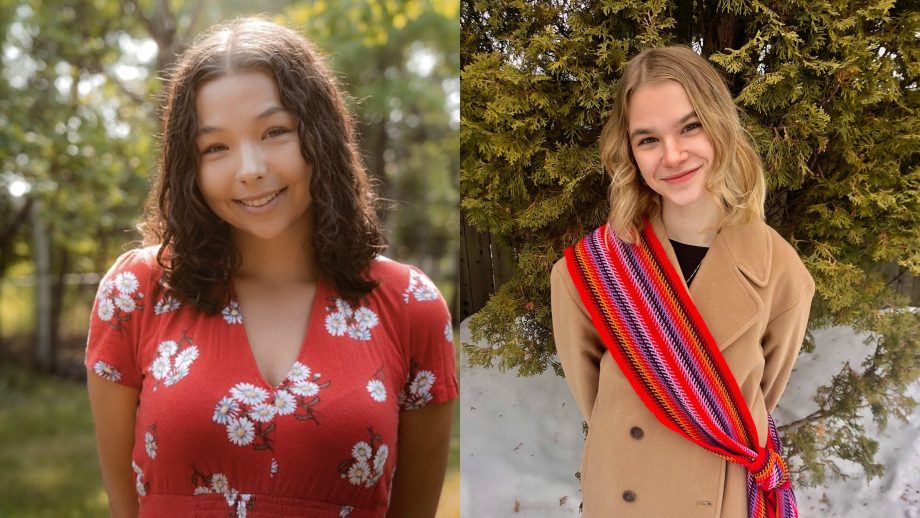Seven outstanding Indigenous undergraduate students in The University of Winnipeg’s Chapter of the Canadian Indigenous Science and Engineering Society (.caISES) have returned from the AISES Canadian National Gathering in Vancouver, BC.
Simon DePasquale, M Howell-Favell, and Gracie Grift presented their research at the gathering while being supported by colleagues Logan Christopher Asham, Cassidy Lamirande, Jessica Ducharme, and Kaydon Laurin.
The team was accompanied by superstar alumna Melissa Anderson, who presented on behalf of UWinnipeg at the gathering along with Angeline Nelson, Acting Lead of Indigenous Engagement and Wii Chiiwaakanak’s Director of Community Learning and Engagement. Anderson served as the inaugural Vice-President of UWinnipeg .caISES chapter and was also an instructor in the NSERC-funded Pathways to Graduate Studies (P2GS) program
This conference allowed me to learn about other research in Canada, as well as meet so many amazing Indigenous scholars.
Gracie Grift
The AISES Canadian National Gathering gave the seven students the opportunity to build their network, learn about career opportunities, and discover what Indigenous professionals are doing with their science and engineering degrees.
Undergraduate research
DePasqual, who is a Bachelor of Science (Hons) student, presented his research on the impact catch-and-release (C&R) angling has on Manitoban lake trout. This is based on his thesis he’s undertaking in Dr. Caleb Hasler’s Fish Biology and Conservation Lab on campus.
His research is the first study to look at C&R angling impacts on a molecular level. More specifically, it looks at how angling impacts lake trout gill metabolism, acid-base regulation, and stress.
“Historically, many Indigenous peoples have located themselves on bodies of water rich in fish resources,” said DePasqual. “Now, these same locations are sought after destinations for anglers who may be jeopardizing Indigenous interests, such as commercial and subsistence fishing. As my work uses a technique new to C&R science, I hope these results, as well as future work in this area, can help protect these fish resources.”
Grift, who is in her third year of her Bachelor of Science (Hons) in biology, presented her research related to a study she is working on called Dissociating the Effects of Lung Size and Sex on the Mechanics of Breathing During Exercise, led by Dr. Yannick Molgat-Seon, Faculty of Kinesiology and Applied Health.
The purpose of her work is to help characterize some of the key physiological and morphological differences between males and females, and how they influence breathing.
“This conference allowed me to learn about other research in Canada, as well as meet so many amazing Indigenous scholars,” Grift said. “This conference was a great reminder that our people have always been scientists and that the passion we feel for our research is our ancestorial knowledge speaking through us. I am so thankful to have had the opportunity to attend the National Gathering and connect to my community in such a special way.”
UWinnipeg Indigenous programs
Anderson is currently pursing her PhD in biomedical engineering at UManitoba under the supervision of UWinnipeg physicist Dr. Melanie Martin.
In addition to presenting her research, Anderson and Nelson highlighted the programs and opportunities offered at UWinnipeg to encourage Indigenous students to pursue science from a very young age.
This includes Wii Chiiwaakanak Learning Centre’s Indigenous Summer STEAM Camp, which hosts students in Grades 1 to 6 on campus. There are also numerous programs within the University for undergraduate and graduate students, including P2GS, the Indigenous Summer Scholars Program, and Natural Sciences and Engineering Research Council of Canada Undergraduate Student Research Awards.
“We spoke about the programs UWinnipeg offers to encourage students to pursue science and graduate school,” said Anderson. “I think it is important to share these programs, because they can offer similar programs at universities across the country. This will give more Indigenous students in science opportunities to further their education.”
To learn more about The University of Winnipeg’s Chapter of .caISES, visit their website.

